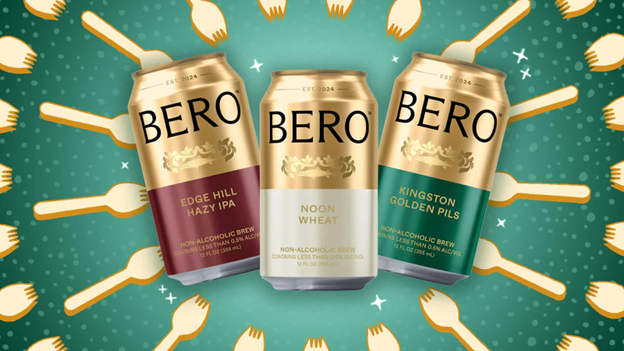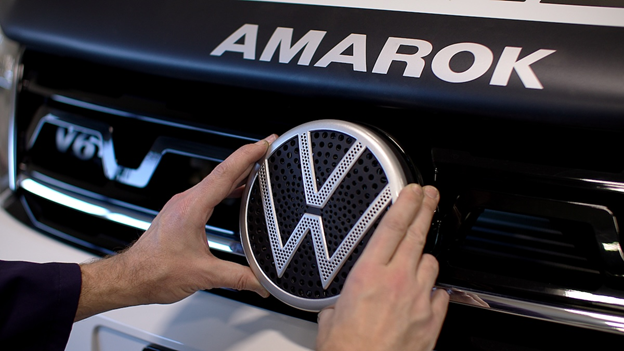How did this "Marvel" spin a marketing web of success with its blockbuster brand?
| From the desk of Miles Everson: How are you? I hope you’re all feeling well and enthusiastic today. I’m excited to welcome a new week by talking about our “Marketing Marvels!” Each Monday, I publish articles about outstanding individuals with lots of incredible marketing and business prowess. For today, let’s highlight an actor whose name made waves in the Marvel Cinematic Universe (MCU) . Continue reading below to learn more about this person. |
How did this "Marvel" spin a marketing web of success with its blockbuster brand? Success in Hollywood isn’t just about talent—it’s also about timing, adaptability, and knowing how to connect with an audience. The same is true for business. In an industry where public perception is everything, some stars fade into the background, while others redefine their careers with savvy decisions that extend beyond the silver screen. One such name that has seamlessly blended authenticity with strategic branding is Tom Holland . From web-slinging in billion-dollar blockbusters to launching a brand that’s shaking up an entire industry, Holland’s journey is not just a celebrity venture but also a masterclass in marketing and business positioning.
More Than Just Spider-Man Born in 1996 in Kingston upon Thames, England, Holland’s career started humbly with his breakout role in “Billy Elliot the Musical” on London’s West End. However, his true rise to fame came when he landed the role of Peter Parker or Spider-Man in the Marvel Cinematic Universe (MCU), catapulting him into global stardom with “Spider-Man: Homecoming” (2017) and subsequent MCU films. What sets Holland apart from other actors isn’t just his acting chops but also his relatability. Unlike many Hollywood elites, he remains grounded, engaging directly with his audience through social media, candid interviews, and an approachable personality. He’s the guy-next-door who just happens to be a superhero, and that genuine connection is the cornerstone of his marketing power. The Birth of Bero In 2024, Holland made an unexpected yet calculated business move by launching Bero , a nonalcoholic beer brand.
Unlike many celebrity-endorsed brands that feel like cash grabs, Bero was deeply personal for him. The idea stemmed from Holland’s own experience with sobriety, which began as a challenge and evolved into a lifestyle choice after realizing its positive impact on his life. … but wait, there’s more!d. Instead of merely slapping his name on a product, Holland and his team developed Bero with intentionality. The brand launched with three brews:
… all of which are crafted to maintain the depth and complexity of traditional beers without the alcohol. Then, partnering with industry veteran Grant Wood, Holland ensured Bero was not just a gimmick but a quality-driven product that could stand on its own in the competitive non-alcoholic beverage market. The Secrets Behind Holland’s Brand Strategy Holland’s approach to business and branding offers key takeaways for entrepreneurs and marketers alike. Here’s what makes him a true “Marketing Marvel”:
Clearly, Holland’s business playbook is a reminder that great marketing is not just about selling but also about storytelling. Here are three key lessons you can take away from his approach:
— Holland’s transition from actor to entrepreneur is proof that celebrity brands can be more than just trendy—they can be meaningful, impactful, and successful. By blending authenticity with strategic marketing, he has positioned Bero as a serious player in the nonalcoholic beverage industry while reinforcing his reputation as a brand powerhouse. For marketers and business owners, the takeaway is simple: The best brands aren’t built—they’re lived. … and in a world where consumers crave authenticity more than ever, Holland’s Bero is not just a beverage but also a blueprint for success. Hope you’ve found this week’s topic interesting and helpful. Stay tuned for next Monday’s Marketing Marvels! Meta spent billions to have this “Marvel” lead its AI division. Not only did he create a successful startup, but he also did so at a young age. Learn more about Alexandr Wang in next week’s article! |

Miles Everson
CEO of MBO Partners and former Global Advisory and Consulting CEO at PwC, Everson has worked with many of the world's largest and most prominent organizations, specializing in executive management. He helps companies balance growth, reduce risk, maximize return, and excel in strategic business priorities.
He is a sought-after public speaker and contributor and has been a case study for success from Harvard Business School.
Everson is a Certified Public Accountant, a member of the American Institute of Certified Public Accountants and Minnesota Society of Certified Public Accountants. He graduated from St. Cloud State University with a B.S. in Accounting.





